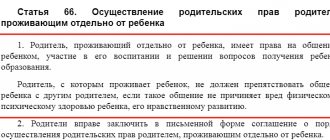In this article I will only talk about oral representation in court , but if you are interested, you can read my other articles about representation.
Most citizens are not aware of many legal subtleties and therefore many fall for the tricks of scammers who lure their victims with beautiful words that oral representation in court will help reduce costs, and there is no point in formalizing powers at all, since representation in court is based on an oral petition It will be enough for the lawyer to be able to represent the rights of the defendant in court (represent the interests of the plaintiff). Unfortunately, in recent years the number of pseudo-lawyers has been increasing, and the number of deceived citizens has also increased accordingly. Therefore, I believe that this article may help someone learn something about the world of jurisprudence and some of the pitfalls associated with the registration of powers.
Of course, in the bulk of legal proceedings it is oral representation in court , because litigation is oral communication between the parties present in the courtroom. And it seems that no one is lying when they talk about oral representation in court, but... this is not only a play on words, but also the first pitfall, because any representation must be properly formalized.
Representation in court by oral petition
The trial is a rather specific place and requires specific knowledge of jurisprudence and experience in court. However, everyone should understand that representation in court is possible by oral petition , whether representation in a district court or representation in a magistrates' court.
Representation in court is regulated by the 5th (fifth) chapter of the Code of Civil Procedure of the Russian Federation (“Civil Procedure Code of the Russian Federation” dated November 14, 2002 N 138-FZ), which sets out who exactly can be a representative, in what cases there can be representation, when a representative the court itself appoints who cannot be a representative, how the powers of the representative are formalized and what powers may be.
As a rule, representation in court upon an oral petition is carried out in the presence of a citizen defending his rights (defendant) or a citizen defending his rights (plaintiff). If in a lawsuit, in addition to the plaintiff and defendant, there are also third parties who want their interests to be represented by a person with specific knowledge of jurisprudence, then they are also obliged to formalize such powers accordingly.
When the principal (a person who wants to be represented by a person with the necessary skills and knowledge) believes that he will be represented in the process by a lawyer, then he must make a statement in court or orally, which must be entered into the minutes court hearing, or in writing. At the same time, the principal must understand that representation in court upon an oral petition limits his representative in certain rights, which can only be expressed in a written power of attorney issued by a notary. In particular, when a lawyer represents the rights of the defendant in court , in a number of cases the professional can make certain statements, for example: file a counterclaim, file a petition to transfer the dispute to an arbitration court, etc. and so on. And if in court there is only a lawyer who provides representation in court on an oral statement without his client, then in some moments we can talk about the collapse of the whole case, i.e. the result that would have been possible if there had been a normal power of attorney.
I quote paragraph 6 of Art. 53 Code of Civil Procedure of the Russian Federation:
6. The powers of the representative may also be determined in an oral statement recorded in the minutes of the court session, or in a written statement of the principal in court.
What documents are needed to confirm representation?
To be able to represent the interests of a party who cannot legally do so on their own, you must provide the court with evidence that the person is the legal representative. You will need the following:
- Passport.
- Birth certificate or document appointing a guardian.
Having provided this evidence, the representative can defend the ward himself in court, or hire another person, for example, by ordering the services of a lawyer in court. But he must transfer his powers to him.
Representation in arbitration court by oral application
The question will probably arise: is it possible in the arbitration process to represent the court on the basis of an oral statement ? I answer - Yes. The Arbitration Procedural Code of the Russian Federation dated July 24, 2002 N 95-FZ provides for the possibility of determining the powers of the representative expressed in the statement of the represented. But it is also worth remembering that the powers of such a representative will be limited. Those. when a lawyer provides legal services in an arbitration court as representation in court based on an oral statement made by you, then his powers provided for in Part 2 of Art. 62 of the Arbitration Procedure Code of the Russian Federation must be set out in a power of attorney issued by the represented person or in another document.
I quote part 4 of Art. 61 Arbitration Procedure Code of the Russian Federation:
...The powers of a representative can also be expressed in a statement by the person represented, made at the court hearing, as indicated in the minutes of the court session.
Representation in criminal proceedings based on an oral statement
What can we say about representation in criminal proceedings based on an oral statement? Is this possible or not? The Criminal Procedure Code of the Russian Federation dated December 18, 2001 N 174-FZ provides for slightly different options for representation that are not quite similar to representation in civil proceedings, arbitration proceedings or administrative proceedings (within the framework of the code of administrative offenses).
Simply put, if we are talking about a civil defendant, then the admission of such a representative is carried out on the basis of a petition from the civil defendant himself, but such a petition must be either in writing, which is attached to the criminal case, or orally, which is entered in the protocol of the investigative action or court session. Accordingly, such a petition must be considered, and on the basis of a court ruling or a decision of a judge, investigator, or inquiry officer, a representative may be admitted as a representative.
I quote Part 1 of Art. 54 Code of Criminal Procedure of the Russian Federation:
1. Representatives of a civil defendant may be lawyers, and representatives of a civil defendant who is a legal entity may also be other persons authorized in accordance with the Civil Code of the Russian Federation to represent his interests. By court ruling or order of a judge, investigator, or inquiry officer, one of the civil defendant’s close relatives or another person for whose admission the civil defendant applies may also be admitted as a representative of the civil defendant.
As for the representative of the victim, civil plaintiff and private prosecutor, in this case, in fact, the procedure for attracting a representative is no different from the procedure provided for in civil proceedings, arbitration proceedings, but taking into account Art. 120 Code of Criminal Procedure of the Russian Federation.
I quote art. 120 (Statement of petition) Code of Criminal Procedure of the Russian Federation:
- 1. A petition may be filed at any time during the criminal proceedings. A written petition is attached to the criminal case, an oral petition is entered into the protocol of the investigative action or court session.
- 2. Rejection of the application does not deprive the applicant of the right to re-submit the application.
Resolution of the Plenum of the Supreme Court of the Russian Federation dated June 29, 2010 N 17 (as amended on May 16, 2017) “On the practice of application by courts of norms regulating the participation of the victim in criminal proceedings”
7. Within the meaning of Part 1 of Article 45 of the Code of Criminal Procedure of the Russian Federation, representatives of the victim, civil plaintiff and private prosecutor can be not only lawyers, but also other persons who, in the opinion of these participants in the proceedings, are capable of providing them with qualified legal assistance. The powers of such persons are confirmed by a power of attorney, duly executed, or by a statement by the victim, civil plaintiff, or private prosecutor in a court hearing. The court, when deciding on the admission of a representative, taking into account information about his identity, must make sure that there are no circumstances precluding the participation in the criminal proceedings of a representative of the victim or civil plaintiff (Article 72 of the Code of Criminal Procedure of the Russian Federation).
Consequently, representation in criminal proceedings based on an oral statement is possible , but such a statement, namely a petition, must be made in accordance with Art. 120 Code of Criminal Procedure of the Russian Federation. In all other cases, i.e. When we are talking about a suspect, accused, defendant, convicted person, in criminal proceedings only a lawyer can be a representative, or rather not a representative, but a defense attorney.
And in the case when we are talking about a minor suspect and accused, their legal representatives (mother, father, guardian, etc.) are required to participate in the criminal case. Therefore, in this case, representation in criminal proceedings based on an oral statement .
Attracting a representative
Most often, legal assistance is needed in complex cases when a competent plan for the provision of evidence, work on calling witnesses, and understanding of accounting, contractual and other documents are required. Sometimes the complexity is due to the large volume of case materials, rare examinations, as well as a large number of participants in the case, third parties, and the presence of counterclaims.
Almost always, a professional is involved in class action lawsuits - for example, when it comes to protecting the rights of defrauded shareholders of an apartment building under construction, the developer of which has gone bankrupt. In such cases, the plaintiffs, having united, save not only time, but also costs.
Question: Where can I find a representative?
These are usually lawyers working in a firm or as sole traders providing legal services. To provide them, an agreement is concluded, the text of which, by mutual agreement, can include any clauses that suit the customer and client.
For example, you can hire a representative only to prepare and submit a statement of claim to the court. On the contrary, sometimes the text of the claim is drawn up by the citizen himself using samples on the Internet, and he entrusts participation in the consideration of the case in the first instance or in two or even three instances at once to a lawyer. After the work is completed, a certificate of services performed is drawn up.
It is a mistake to think that assistant judges or prosecutors can provide such services. Representatives of citizens cannot be law enforcement officials - prosecutors, investigators, assistant judges and judges, except in situations where such authority is specifically defined by law. For example, when a person has no relatives, is disabled, and does not have the opportunity to go to court to protect his rights - according to the law, in such a situation a prosecutor can act in his interests. In fact, when filing a claim in defense of a disabled person, the prosecutor is his representative.
It is no secret that there are now quite a lot of people offering their services in the legal field. An ordinary person who decides to defend his rights in court with the help of a lawyer will have to make a difficult choice among the many calling themselves professionals. Let us give some recommendations when choosing a representative:
- You can follow the recommendations of those you know you trust. For example, if relatives or friends turned for help to one of the legal advisers who won the case, they were satisfied with the quality of his services - most likely, this is a really competent specialist, and his services are worth using.
- If you prefer the services of an employee of a law firm or individual entrepreneur to provide such services, it is better to contact a large company that has been on the market for a long time. An organization whose reputation is impeccable always has a website that clearly describes the types of services and prices, and often presents photographs of employees with a brief description of the category of cases in which each of them works. If a company does not have a website or, worse, even a sign, we would not recommend trusting such an organization with your problem.
- pay attention to the lawyer's specialization. It would not be amiss to at least briefly familiarize yourself with the most high-profile disputes in which he took part and find out the results of the proceedings. If a professional has hundreds of cases in arbitration court, then perhaps it is not worth involving him in a dispute over the division of property or in a claim for deprivation of parental rights. However, some lawyers are equally well versed in arbitration and administrative legislation, as well as criminal and civil. There are few such high-class specialists, and if one is found, it is a great success.
- The first meeting with an excellent specialist usually takes place in the office, the environment of which can say a lot. It is not at all necessary that the “meeting room” should have premium furniture, but there should be basic amenities and cleanliness. Professionalism is emphasized by the presence in the interior of certificates of advanced training, specialized courses and trainings. Usually, after the first conversation, it becomes clear whether the consultant has understood the problem, whether he sees ways to solve it, and whether he can make an approximate forecast of the outcome. In any case, conducting a conversation does not oblige the citizen to enter into an agreement. If something bothers you, you can contact another company.
The initial consultation can be online, but in this case you need to be especially careful, make sure of your competence - perhaps ask for proof of legal education (at least a photo of your diploma).
About education
Until October 1, 2019, the Code of Civil Procedure of the Russian Federation and the Arbitration Procedure Code of the Russian Federation did not contain a requirement for a judicial representative to have a higher legal education (the CAS RF had such a requirement until October 2021). In some cases, this led to the fact that a “lawyer” who does not have a diploma provides far from high-quality services, and it is almost impossible to sue for unprofessional assistance or even for harm caused.
The situation with lawyers is different - not only must they all have a higher legal education, but they must also fully comply with the requirements of Federal Law No. 63-FZ of May 31, 2002 “On advocacy and the legal profession in the Russian Federation,” as well as the Code of Professional Ethics for Lawyers.
If a lawyer provided poor quality assistance and acted contrary to the position of the client, you can write a complaint to the Bar Association, and disciplinary measures may be taken against him.
The central office of the Ministry of Justice of the Russian Federation annually considers hundreds of complaints from citizens about the poor quality of services provided by lawyers who are not lawyers. The indignation of these people is understandable: they spent their money, in some cases quite large sums, and among the complainants there are many pensioners, disabled people, etc., whose income is small. The complaints draw attention to the fact that the lawyer took the money, lost an obviously winning case due to his incompetence, and does not want to return the money. The person again has to go to court, hire another lawyer, and it’s good if the problem can be corrected.
From October 2021, lawyers representing the interests of people in courts are required to have a higher legal education or an academic degree in a legal specialty (with the exception of cases considered by magistrates and in district courts in accordance with the Code of Civil Procedure of the Russian Federation), of which they must provide the court with confirmation:
- Bachelor's degree;
- specialist diploma;
- master's degree;
- diploma of completion of postgraduate study (adjunct) in legal specialty;
- Diploma of Candidate of Sciences or Doctor of Sciences.
The list of these diplomas follows from the meaning of the review of the Supreme Court of the Russian Federation dated December 25, 2019, where, with reference to the law “On Education in the Russian Federation,” it is explained what is meant by higher education: bachelor’s degree, specialty, master’s degree, training of highly qualified personnel. Consequently, those who have completed bachelor’s, specialist’s, master’s, or highly qualified personnel training in the field of training (specialty) “law” are recognized as having higher education with the qualification:
- bachelor;
- master;
- lawyer;
- forensic expert;
- researcher;
- teacher-researcher.
In accordance with the requirements of Part 2 of Art. 49 Code of Civil Procedure of the Russian Federation, Part 3, Art. 59 Arbitration Procedure Code of the Russian Federation, Part 1, Art. 55 of the Code of Arbitration Code of the Russian Federation, representatives are required to provide the court with documents on education in the original or in a certified copy. Certification is possible by a notary, as well as by the institution or organization from which the document originates (for example, certification by a university). The original, if there is a certified copy, will not be required, but the law (for example, Part 9 of Article 75 of the Arbitration Procedure Code of the Russian Federation) gives judges the right to demand that the original be presented for review purposes.
In addition to the diploma, the representative is required to present to the court a document confirming his authority.
Representation in administrative proceedings by oral application
Regarding representation in administrative proceedings based on an oral statement, this is somewhat difficult, because The Code of the Russian Federation on Administrative Offenses dated December 30, 2001 N 195-FZ does not provide for oral representation in court , i.e. does not provide for the possibility of submitting an oral request to attract a representative. However, by virtue of clause 8 of the Resolution of the Plenum of the Supreme Court of the Russian Federation dated March 24, 2005 N 5 (as amended on December 19, 2013) “On some issues that arise for courts when applying the Code of the Russian Federation on Administrative Offences,” the following is stated, I quote :
If a person brought to administrative responsibility or a victim, in accordance with Part 2 of Article 24.4 of the Code of Administrative Offenses of the Russian Federation, submits a petition at a court hearing to involve a defense attorney or representative to participate in the case of an administrative offense, then such a defense attorney or representative must be allowed to participate in the case of administrative offense without submitting a corresponding power of attorney.
(paragraph introduced by Resolution of the Plenum of the Supreme Court of the Russian Federation dated December 19, 2013 N 40)
But with all this, it is worth considering that ( I quote the same Plenum of the RF Armed Forces dated March 24, 2005 N 5 ):
... the right of a representative to sign and file complaints against a resolution in a case of an administrative offense, to a decision on a complaint against a resolution in a case of an administrative offense, to refuse such complaints, to receive recovered expenses incurred in connection with the consideration of a case of an administrative offense, to receipt of confiscated and returned instruments of committing and (or) items of an administrative offense must be specifically stipulated in the power of attorney.








